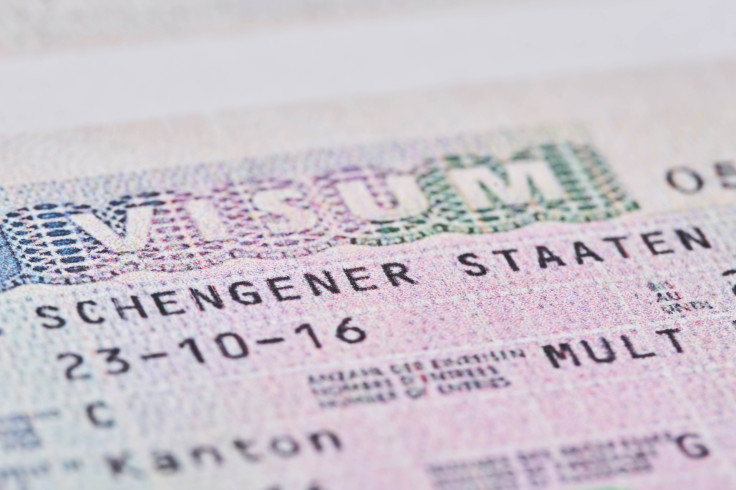UK Mum's Dream Holiday Ruined By New Brexit Passport Rules: Don't Miss These Overlooked Regulations
New passport rules may create unexpected hurdles for European vacations

Following Brexit, UK passport holders face increased difficulties when travelling to Europe and the Schengen Area. As UK nationals are now considered "third-country nationals," their passports must adhere to specific issuance and validity requirements, creating unexpected complications for many travellers.
Hollie, a TikTok user known as @hollieandthevan, experienced these new regulations firsthand when she was denied entry to the Schengen Area while attempting to take her family on holiday to France. Although her passport's official expiration date was January 2025, the document had been renewed nine months early in 2014, making it more than 10 years old by the time of her intended travel in July 2024.
Before Brexit, UK nationals could travel with passports that were technically expired for up to nine months, effectively extending their validity beyond the standard 10 years. However, post-Brexit regulations stipulate that passports must be no older than 10 years from the date of entry and have at least three months remaining before expiration.
For Hollie, these new rules meant her passport was considered invalid despite the printed expiration date, forcing her to obtain an emergency passport, which takes several days to process. She shared her experience on social media, warning others: "Don't have your heart broken like I did, know the rules."
@hollieandthevan Heartbreak at the gate ✈️💔 I should have been in France with my husband, children and family this weekend. Instead I was turned away because my passport didn’t meet the 10-year rule, watching my husband and children head off without me. I had no idea about this post-Brexit travel regulation and it seems so many of you didn’t either, so I thought I would share this so that you get the heads up that I missed. UK passports must have at least 3 months’ validity and be less than 10 years old to enter the EU. My passport was issued in April 2014 and was therefore 10 years old in April 2024. However, because I had 9 months left when I renewed my passport in 2014, they added those months on, therefore my passport doesn’t expire until January 2025. Those remaining 9 months are no good to me since post-Brexit UK passport regulations, because I can’t use my passport now that it’s over 10 years old. What is most frustrating about the process is that you must enter your expiry date when checking in, but you don’t have to enter your issue date, where this problem could have been flagged. ‘It’s your problem, you should know the rules’, is what I was told at the gate when I was denied boarding. I didnt know the rules then, but I do now! So this is my heads up to you- know the rules and double check! ❓Is your passport over 10 years old? ❌If so, you can’t use it to enter the EU. ❓Do you have less than 3 months until your passport expires? ❌If so, you can’t use it to enter the EU. 👆🏻 If either of the above apply, you must renew before you travel. 🚨 Also, if you need an emergency passport, you need to allow 2 days to get one. The earliest you can renew is 2 days after you apply for the appointment at a passport office. Don’t have your heart broken like I did, know the rules (like I didn’t 🫣). Please share this with anybody travelling to the EU from the UK soon 🩷 I hope it’s useful. #uktravel #travel #travelblogger #travelgram #traveler #brexit #brexitmeansbrexit #travelrules #womensupportingwomen #womensupportwomen #womenempoweringwomen
♬ What Was I Made For? [From The Motion Picture "Barbie"] - Billie Eilish
New Post-Brexit Passport Rules
All British nationals travelling to EU countries, excluding Ireland, are subject to these new regulations. These rules also apply to non-EU Schengen Area countries such as Monaco, Andorra, Liechtenstein, Iceland, and Norway.
Key Requirements for UK Passports
- Expiration Date: Your passport must expire at least three months after the date you plan to leave the EU country.
- Issuance Date: Your passport must have been issued no more than 10 years before the date you enter an EU member state.
Checking Your Passport's Validity
To ensure your passport complies with these regulations, ask yourself:
- Was your passport issued no more than 10 years before your arrival date?
- Does your passport expire at least three months after your departure date?
If you answer "no" to either question, you will need to renew your passport or obtain an emergency travel document, especially if your trip is imminent or if you are denied entry at the airport. You can check your passport's validity on the UK government website.
The Cost of Renewing a Passport
Passport renewals must be processed through the HM Passport Office, either online or by post. Online renewal is the most cost-effective and preferred method among UK nationals, costing £88.50.
Required Documents for Adult Passport Renewal
- A digital photo
- A credit or debit card
- Your old passport, including any international passports
To renew by post, you can request a paper application form from the Passport Adviceline or visit a post office offering the Check and Send service. The cost for postal applications is £100.
Required Documents for Child Passport Renewal
- A digital photo of the child
- Any previous passport
- Any current international passports
- Any relevant court orders concerning the child
The fee for renewing a child's passport online is £57.50, while postal renewals cost £69. Payment can be made via debit or credit card by completing the form in the application pack or by sending a cheque payable to "HM Passport Office." As a parent or legal guardian, you must also provide two new identical printed pictures of yourself.
With these regulations now in effect, it is crucial for UK travellers to ensure their passports meet the updated requirements well in advance of their travel dates. The transition from being part of the EU to a third-country status has introduced significant changes in travel documentation, and being unprepared can result in denied entry and ruined travel plans.
© Copyright IBTimes 2025. All rights reserved.






















